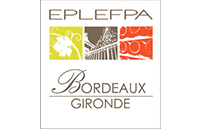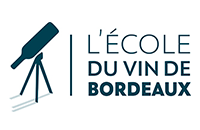The main aim of the "Vine and Wine Sciences" degree is to help students who have completed their A-levels find their way into the wine industry by developing the skills they need either to continue their studies at Baccalaureate +5 level (DNO, Master's) in the same sector or to enter the wine industry in the fields of analysis, quality control and the wine industry environment. The proposed structure aims (1) to integrate subject-based teaching on vines and wine from the first year and (2) to offer progressive customisation in chemistry or biology up to the choice of a vine/wine pathway in order to : The integration of the subject within the ST portal, followed by the customisation of chemistry or biology and finally the gradual organisation into two pathways, ensures that students can continue their studies in this sector or in a sector linked to agri-food, biotechnology, analysis or quality, as well as entering the job market in the wine analysis and control sector. He/she is able to : Enrolment in L1 Candidates must hold : A BAC with a scientific background (physics-chemistry, earth sciences, mathematics, engineering sciences, etc.). Applications are assessed on the basis of a portfolio and professional project. Applications are made by sup: https://www.parcoursup.fr/ For admission via parcours sup, applications are made via the University of Bordeaux science and technology portal. The number of places is limited to 40. Enrolment in L3 Candidates must have : The course is open to initial and continuing training, VAE and VAPP students. Applications are assessed on the basis of the student's portfolio and career plan. Applications are made online via the Université de Bordeaux website, using the eCandidat application.. The number of places is limited to 40 (15 analysis, quality and environment courses and 25 fundamental courses for oenology). The Bachelor's degree in Vine and Wine Sciences is part of the University of Bordeaux's single Science and Technology portal and offers progressive customisation during the first two years (from Semester 1 to Semester 4) , allowing students to acquire both general skills in biology or chemistry and specific skills in the wine sector. From the third year onwards, students can choose between two specific pathways that meet the needs of the job market and ensure that they acquire the skills necessary to pursue a Master's degree. From the start of their bachelor's degree, in Semester 1 (Science and Technology Portal), students begin to learn about the challenges facing the wine industry through a core Vine and Wine course. At the end of Semester 1, they can choose to continue in S2, S3 and S4 with a specialisation in SVV or switch to a specialisation in Chemistry or Life Sciences in the Science and Technology faculty, or even to another specialisation in the Science and Technology faculty, depending on their choice of introductory course. At the end of semester 1 and during the second year (in S2, S3 and S4), students enrolled in the SVV programme systematically take a 6 ECTS disciplinary vine-wine course each semester, enabling them to begin acquiring the fundamentals of chemistry, mathematics and physics as applied to oenology. At the same time, they take personalised courses in either biology or chemistry (the two main disciplines required for oenology). At the end of the second year, they choose between two paths for semesters S5 and S6 of the third year: Organisation of the first and second years The first two years of the Bachelor's degree in Vine and Wine Science allow students to acquire 120 ECTS credits organised into skill and knowledge blocks (BCC) as well as core and personalised teaching units (UEs). Admission to the programme takes place in the first semester (S1) via the Sciences and Technologies portal of the University of Bordeaux via Parcours sup. At the end of S1, students choose either a chemistry or biology specialisation for three semesters, enabling them to take the general science courses necessary to understand the technical courses in oenology. During the four semesters, one specialised vine and wine teaching unit is delivered per semester. At the end of S4 (end of L2), students enter the final year of their bachelor's degree, which is now entirely dedicated to vines and wine, and choose either the ‘Fundamentals of Oenology’ course as part of a project to continue their studies in DNO or a master's degree, or the ‘Analysis, Quality and Environment’ course as part of a professional integration project. Quality and Environment" as part of a professional integration project. Translated with DeepL.com (free version) Organisation of the third year, Fundamentals of Oenology course The Fundamentals of Oenology course, part of the Bachelor's degree in Vine and Wine Sciences, is a one-year course worth 60 ECTS credits. The programme is organised around teaching units and work placements to enable students to acquire the fundamentals necessary to pursue a Master's degree in the vine and wine sector. The programme is organised around three types of teaching units: Organisation of the third year, Analysis, Quality and Environment (AQE) course The AQE course, part of the Bachelor's degree in Vine and Wine Sciences, is a one-year course worth 60 ECTS credits. The programme is organised around teaching units and work placements to enable students to acquire the skills necessary for professional integration in the analysis and quality control sector of the vine and wine industry. The programme is organised around three types of teaching units: The advantages of the L3 SVV AQE: Rhythm of training The course runs from September to July, with full-time teaching at ISVV and two periods of work experience in a company (3-week introductory course between September and October / 8-week end-of-course course in May and June). Block course The course can be delivered in blocks of RNCP skills Gateways Transfer options only available at the end of semester 1: Exemptions and equivalencies Further studies The teaching methods used contribute to the acquisition of knowledge and skills through lectures, practical work, tutorials, site visits and periods spent in companies. The course is accessible to people with special needs. Find out more : Étudiants à besoins spécifiques - Université de Bordeaux Application schedule L3 for 2026/2027 Documents to be prepared for the application In addition to the application form you have downloaded and completed, you will need to provide Applications can be made online via the Université de Bordeaux website, using the eCandidat application. Visit the University of Bordeaux website: Visit the Université de Bordeaux website For national diplomas, tuition fees are set each year by joint order of the ministers responsible for higher education and the budget. Registration fees for EU students for the 2025/2026 Bachelor's year (tuition fees + library): €178. For more information, visit the Université de Bordeaux website: https://www.u-bordeaux.fr/formation/candidatures-et-inscriptions/cout-des-etudes Continuing education is aimed at employees, the self-employed, jobseekers and, more generally, anyone who wants to learn, improve or validate their professional experience. Depending on your status, there are a number of schemes that may enable you to benefit from financial aid. The ISVV Continuing Education Department will guide you in your dealings with the funding bodies and remains at your disposal for further information.
![]() Calendar of the initial training course Fundamentals of oenology
Calendar of the initial training course Fundamentals of oenology![]() Calendar for initial training in Analysis, Quality and the Environment
Calendar for initial training in Analysis, Quality and the Environment![]() LSVV Analysis, Quality and Environment sandwich course Calendar
LSVV Analysis, Quality and Environment sandwich course Calendar
For students on work-study contracts (apprenticeship and professional contracts), the above teaching methods are supplemented by periods of skills acquisition in companies.
Accommodations and individualised support can be offered by the PHASE service.
Students with foreign qualifications :
Find out more :
Partner establishments:
- EPLEFPA Bordeaux-Gironde, Blanquefort
- Ecole du vin de Bordeaux
- Collège ST Université de Bordeaux






